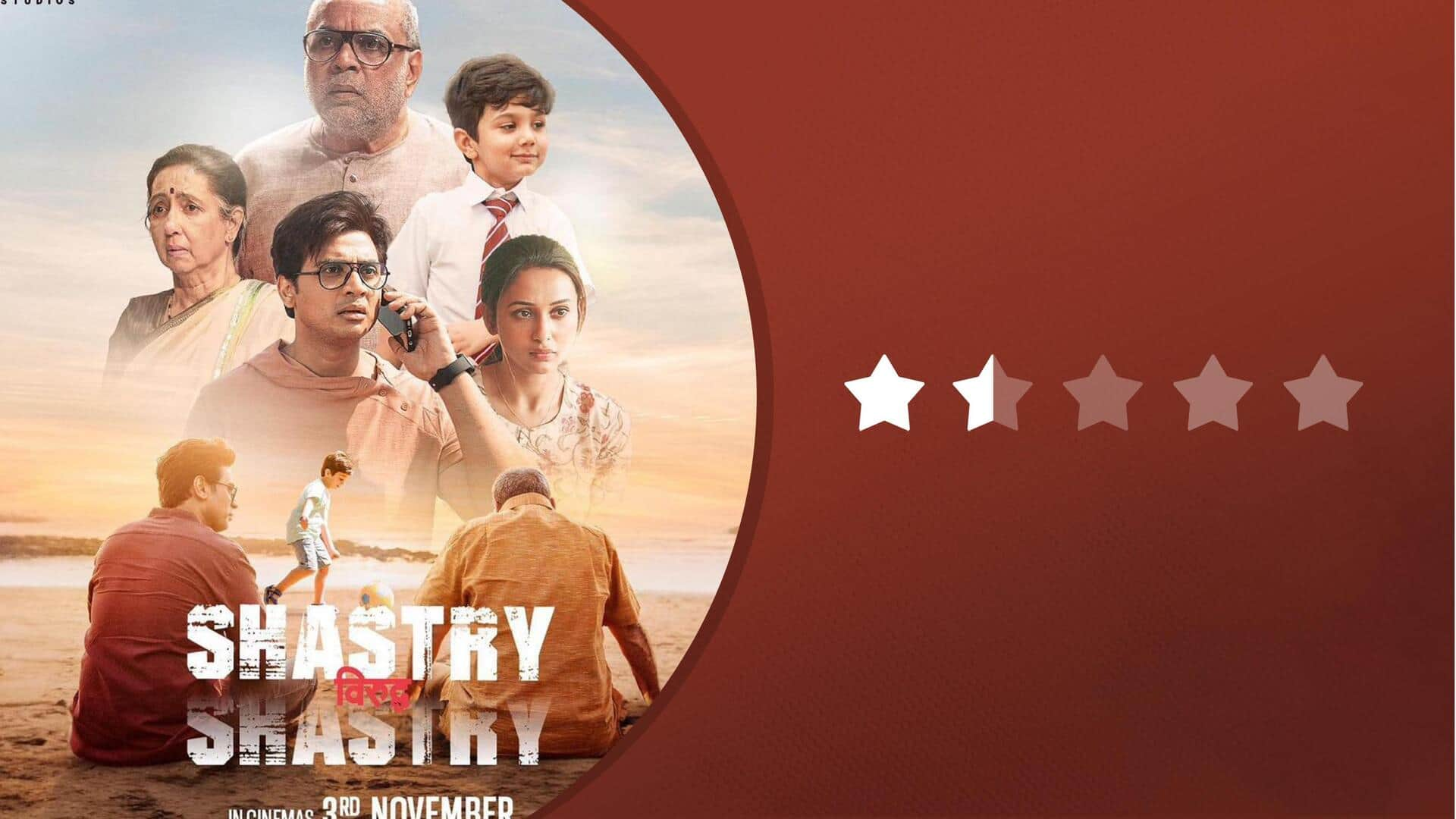
'Shastry Viruddh Shastry' review: Strong performances but predictable and overlong
What's the story
Directed by Nandita Roy and Shiboprasad Mukherjee, the Hindi drama Shastry Viruddh Shastry is an adaptation of the Bengali film Posto. SVS aspires to be a slow-burning, brooding drama, but the truth is, its story is run-of-the-mill and the monotonous, banal screenplay is bogged down by too many cliches and predictabilities. SVS has some good performances, but eventually, those performances stand wasted.
#1
This is what happens in 'SVS'
Yaman/Momoji is a seven-year-old who has grown up with his grandfather Manohar (Paresh Rawal) and grandmother Urmila (Neena Kulkarni). However, trouble uproots their lives when Yaman's parents Malhar (Shiv Panditt) and Mallika (Mimi Chakraborty) decide to take him with them to the US. This leads to a battle between egos, which blazes into a courtroom fight for Yaman's legal guardianship between Manohar and Malhar.
#2
Its predictability means you always know the next scene
The biggest undoing and fatal flaw of SVS is how predictable it is. There are more than a few bumps in its journey and from the lack of emotional heft to painting characters in broad strokes, SVS doesn't get several aspects right. SVS seeks to say a lot using few words, but it doesn't have the right drive to pull that responsibility off.
#3
Doesn't tug at your heartstrings
While SVS should have been sentimental and emotionally resonant considering its plot, it surprisingly feels aloof, distant, and painfully hollow at its core. Manohar has the same expression on his face for almost the entire film, and calling a "game designer" son the black sheep of the family is a trope that should be retired now. Feels like everyone is putting on a show.
#4
Doesn't allow the plot to develop organically
Another reason why we don't feel heavily invested in what should have been an intense father-son battle is because the first time we meet them, there is already palpable tension and ache in the air. Malhar's demand to take Yaman away is sudden and feels forced sans buildup. There's no time for the plot to cook—the dish is served raw, cold, and inedible.
#5
At over two hours, it's excessively long
SVS also doesn't have any sense of narrative rhythm and pacing. The second half, devoted entirely to the courtroom battle, is a long litany of familiar scene after scene that refuses to wrap up on time. To make matters worse, there's even an ill-timed kids' song that does nothing but extend the runtime, making me want to almost give up. Who would have thought?
#6
Positives: What works in 'SVS'?
Coming to what works, Kulkarni and Rawal are excellent choices to bring out the pain of two aging people who are holding on to the only aspect that resuscitates them—childhood and old age are alike in ways more than one, after all. The fight over legal guardianship also underlines the modern-day barter of love and emotions in families and the illusion of happy homes.
#7
Closer look at father-son relationship, its meaning
Another attention to detail/nuance I found quite interesting is how Manohar calls his father Guru ji (teacher). Their egos have driven a wedge between them and the relationship is frayed to the extent that he can't call his father "Baba." He too sees his father like the world does—as a man who maintains discipline and has no place for transgressions in his life.
Verdict
Can skip it in theaters, watch it on OTT once
SVS is about how two generations are both tied by and divided by a third and how parents' excessive love can be a roadblock in a child's journey. There's tremendous ache and discomfort faced by both sides, with none being perfect. However, I wish these points were translated better onscreen and weren't suffocated by its drab screenplay that doesn't let the film breathe. 1.5/5.